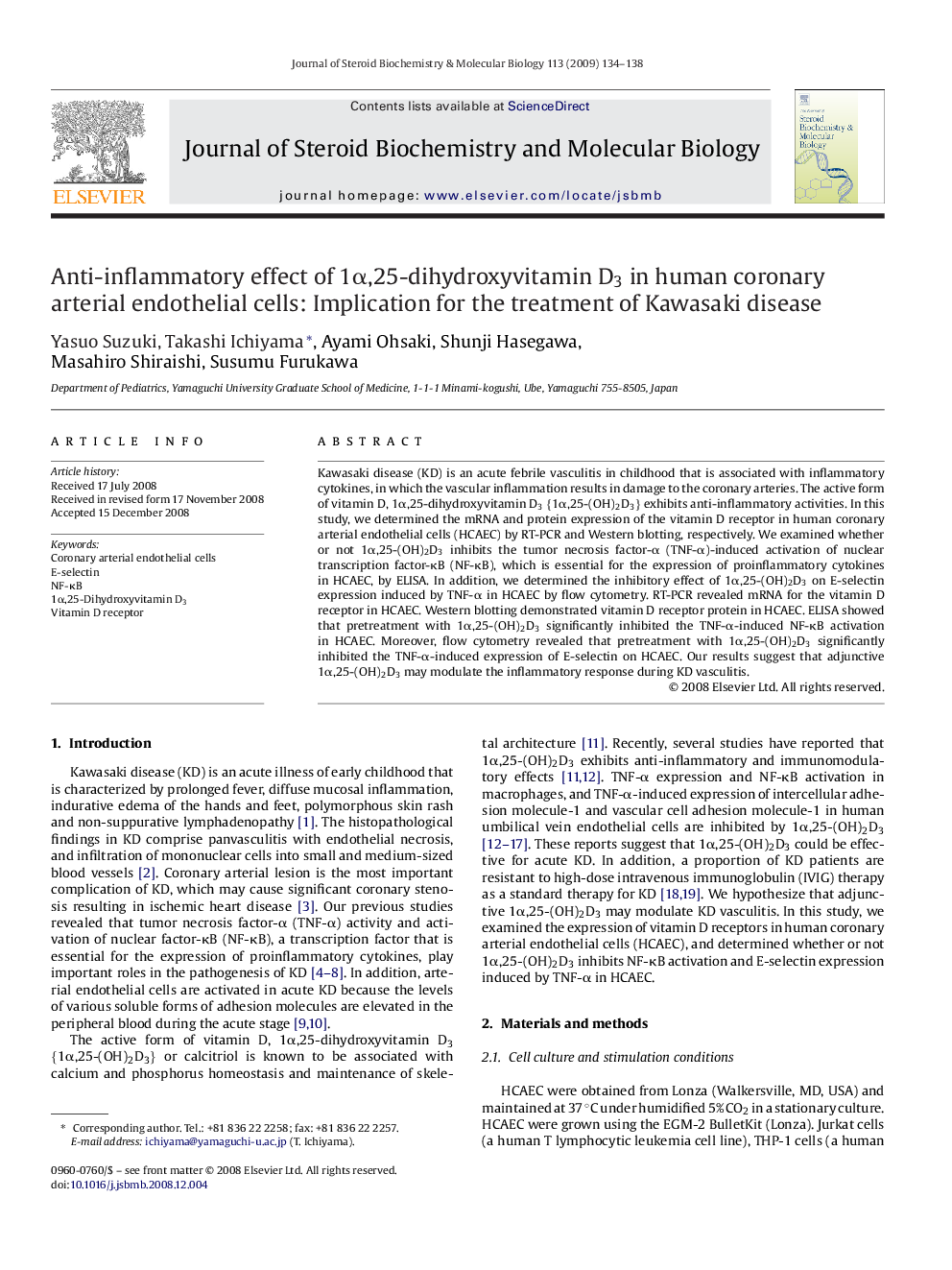| Article ID | Journal | Published Year | Pages | File Type |
|---|---|---|---|---|
| 1991988 | The Journal of Steroid Biochemistry and Molecular Biology | 2009 | 5 Pages |
Kawasaki disease (KD) is an acute febrile vasculitis in childhood that is associated with inflammatory cytokines, in which the vascular inflammation results in damage to the coronary arteries. The active form of vitamin D, 1α,25-dihydroxyvitamin D3 {1α,25-(OH)2D3} exhibits anti-inflammatory activities. In this study, we determined the mRNA and protein expression of the vitamin D receptor in human coronary arterial endothelial cells (HCAEC) by RT-PCR and Western blotting, respectively. We examined whether or not 1α,25-(OH)2D3 inhibits the tumor necrosis factor-α (TNF-α)-induced activation of nuclear transcription factor-κB (NF-κB), which is essential for the expression of proinflammatory cytokines in HCAEC, by ELISA. In addition, we determined the inhibitory effect of 1α,25-(OH)2D3 on E-selectin expression induced by TNF-α in HCAEC by flow cytometry. RT-PCR revealed mRNA for the vitamin D receptor in HCAEC. Western blotting demonstrated vitamin D receptor protein in HCAEC. ELISA showed that pretreatment with 1α,25-(OH)2D3 significantly inhibited the TNF-α-induced NF-κB activation in HCAEC. Moreover, flow cytometry revealed that pretreatment with 1α,25-(OH)2D3 significantly inhibited the TNF-α-induced expression of E-selectin on HCAEC. Our results suggest that adjunctive 1α,25-(OH)2D3 may modulate the inflammatory response during KD vasculitis.
